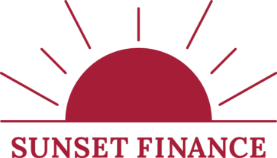
According to Merriam-Webster the term “credit” is defined as “an agreement whereby a financial institution agrees to lend a borrower a maximum amount of money over a given time period. Interest is typically charged on the outstanding balance.” When you open and use a credit card, you are opening a line of credit. Taking out a personal loan is also a form of credit.
Why You Need Credit
Credit can get you access to loans and perks that you otherwise wouldn’t have. Some benefits include access to extended warranties, price protection, and travel upgrades when you use your credit card responsibly.
You can also make payments on a big-ticket item over time. Credit makes it easier to take out loans for larger purchases, such as college tuition, a home mortgage, and a new vehicle. Without an established credit score, many lenders may not even consider you for a loan. And the better your credit, the better interest rates you could qualify for on those loans. That loan may also free up some extra money in your budget for holidays, repairs and maintenance, or other special occasions.
Another reason to have credit is to improve your employment prospects. Some employers may pull your credit report as a process in determining if you are a candidate for a position with them.
Types of Credit
There are different types of credit agreements that you can enter into, and they can all be categorized into two main types: revolving credit lines and installment credit lines. For the best credit score, you need a mix of both.
Revolving Credit Lines
Revolving credit lines are a type of loan that gives you a maximum limit that you can spend during an unspecified amount of time. Once you pay back the loan, the limit resumes, and you can spend it again. Credit cards, store-branded cards, and gas cards are all common examples of a revolving credit line. Monthly payments and balances “revolve” every month vs. having a set term and reduced balanced each month.
Installment Credit Lines
Installment loans are a type of loan that has set payments over a specific period of time. Personal installment loans and mortgages are common examples. Personal installment loans typically have an interest rate that is set at the beginning of the loan term and doesn’t change throughout the life of the loan. Mortgages have both standard rates and adjustable rates (ARMs). For most personal installment loans, the interest rate and payment amount do not change for the life of the loan. Because of this, installment loans may be easier to budget because their payment is set.
Establishing Credit
Since good credit can be a huge benefit for you, it’s important to start establishing credit as soon as possible to prove that you can responsibly manage the loans.
First, start small with a credit-builder or starter loan. These types of loans are made to customers based on criteria such as job stability and income. These loans are typically for a smaller amount, which means the amount of each payment and how many total payments there are, tend to be smaller as well. It is important to make these payments in full and on time to be able to get the desired credit established.
You can also open up a joint account or take out a loan with a responsible co-signer. A co-signer loan holds the other person equally responsible for payback and can reduce the risk for lenders. Having a co-signer also bear the burden of responsibility for the loan may persuade lenders to loan you money.
Lastly, open up a small-limit credit card. Once opened, you can use the card for purchases, and as you make payments, it will help establish your credit.
Maintaining your Credit Score
Once you’ve opened up lines of credit, you will have a credit score based on factors such as the length of your credit history, the types of credit you own, and how quickly you pay back your loans. In order to access the benefits and perks of credit, you’ll want to keep this score high.
Boost your credit score with a good mix of credit. If you demonstrate the ability to manage different types of debt, that’s an indicator that you’ll be responsible with credit in the future and pose less of a risk to creditors.
Pay your bills on time. it is recommended to leave open credit card accounts with a zero balance. Keep your finances organized, and try to check on your score on a yearly basis.
If you find that you have a less-than-ideal credit score, don’t lose hope. It’s never too late to rebuild your credit. Look over all your bills and see where you stand. Bring all your accounts up to date and pay off any old debts. Try listing them from smallest to largest and work your way down the list. Form a monthly budget to help maintain current accounts and start paying on time.
Your Credit Report
You can get a free credit report on a yearly basis. Understanding credit reports may seem a bit intimidating at first, but it’s easy once you realize that the document is broken down into four sections: your credit summary, accounts history, a detailed description of any negative information, and a history of inquiries – information about each time a company or potential creditor asked to see a copy of your report.
Remember, if you don’t like what you see on your report, it’s never too late to rebuild. Make sure not to fall for any of the common credit score myths and keep a good mix of credit to contribute to the report.
Another reason you’ll want to check your credit score on a yearly basis is to help protect against identity theft. By examining your report, you can monitor to see if any unauthorized accounts have been opened in your name. Credit bureaus do offer a ‘credit freeze’ or ‘security freeze,’ which means you will personally have to authorize any attempts to pull your credit. This can make it more difficult for your identity to be compromised regarding unauthorized credit being opened in your name.

